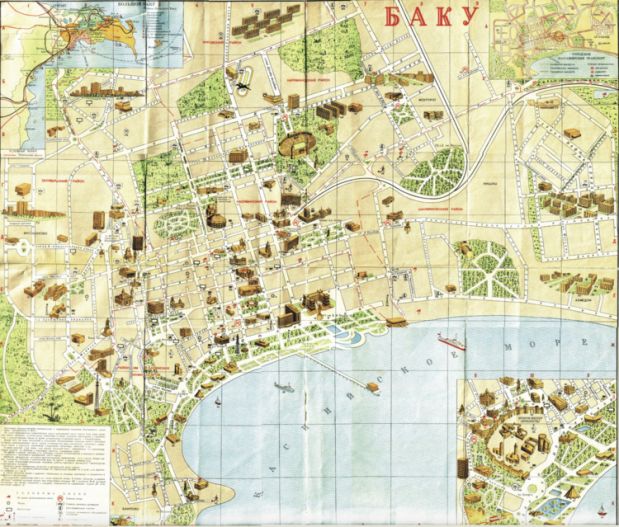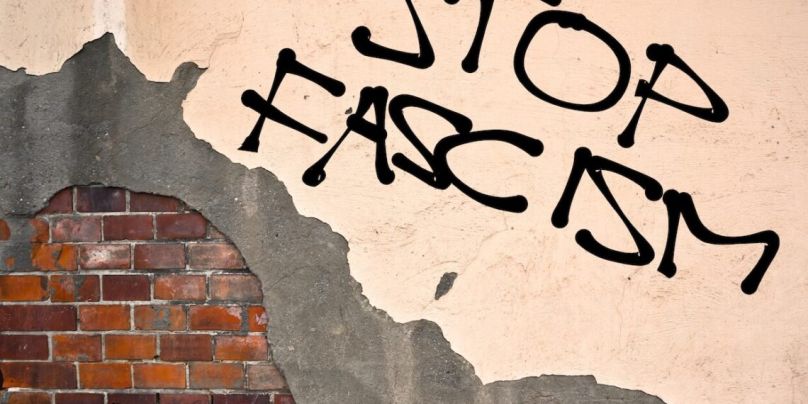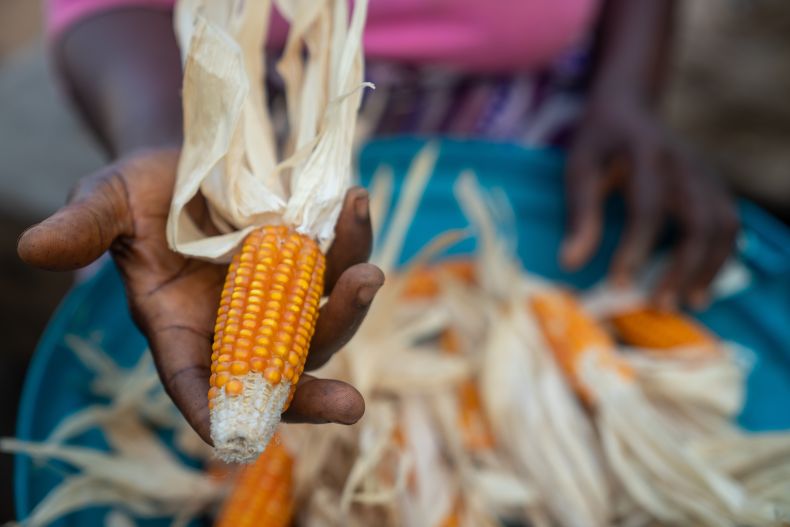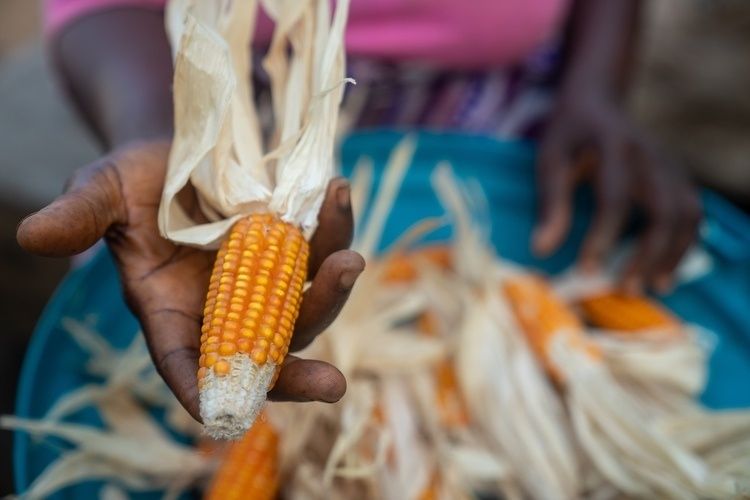Institute for European Studies
In the Neighborhood of Empire: Baku Communities After World War II

October 16, 2025
2:00 pm
Kennedy Hall, 461
What did Soviet empire look like in intimate terms—as experienced and perceived through the lens of interpersonal relations? Despite many decades of scholarship on Soviet society and subjectivity, we have very few neighborhood-level studies of sociability and materiality, although interpersonal experience and relations undoubtedly played a key role in defining belonging, identity, and/or alienation. In other words, to make sense of the legacies of Russian colonialism, we need to think not only of top-down policies and myths of the “friendship of peoples” (although these cannot be excluded, of course), but also of how people applied, adjusted, and lived within this system—something shaped, as this talk shows, by the very material, economic, and geographic conditions of their day-to-day lives.
Attendees are invited to join discussion afterwards 3:30-4:20 on neighborhoods of Soviet and post-Soviet Tbilisi “ with Heather DeHaan, Dr. Maria C Taylor and students in LA6930 course on Second World Urbanism.
Speaker
Heather DeHaan is Associate Professor of History and Director of the Russian, East European and Eurasian Studies Program at Binghamton University. Her research has focused on the making of Soviet cities, but whereas her first book (Stalinist City Planning, Professionals, Performance and Power [U. Toronto Press, 2013]) focused primarily on urban planning, her current research explores the contributions of ordinary urban denizens. This research has been supported by the National Endowment for the Humanities, Fulbright, and the Kennan Institute.
Host
The Institute for European Studies, part of the Einaudi Center for International Studies
Additional Information
Program
Einaudi Center for International Studies
Institute for European Studies
How Communities Can Bridge the Digital Divide

Mildred Warner, IES/LACS
A new book highlights innovative state and local approaches to eliminating “digital deserts,” which persist despite billions in federal subsides promoting universal access.
Additional Information
World in Focus: Venezuelan Drug Boat Strikes

October 7, 2025
4:00 pm
Uris Hall, G08
Join Einaudi Center experts for World in Focus Talks on global events in the news and on your mind. Our faculty's research and policy insights put the world in focus.
This year we’re hosting informal campus discussions on many Tuesday afternoons. This week’s topic:
Following a military buildup in the Caribbean, the U.S. government has confirmed multiple airstrikes on Venezuelan boats suspected of drug smuggling—killing at least 17 in September. The U.S. claims these actions are “armed conflict” against narcoterrorist organizations. The Venezuelan government condemns the attacks as illegal.
Is the U.S. violating international law? What may happen if tensions continue to escalate?
***
Featured Faculty
Oumar Ba (PACS) | Government Pedro M. R. Barbosa (LACS) | Visiting ScholarKen Roberts (LACS) | GovernmentDavid Bateman | GovernmentAleida Sandoval | Visiting Scholar
***
Conversations Matter at Einaudi
This conversation is hosted by the Mario Einaudi Center for International Studies and its regional and thematic programs. Find out what's in store for students at Einaudi!
Additional Information
Program
Einaudi Center for International Studies
Reppy Institute for Peace and Conflict Studies
East Asia Program
Southeast Asia Program
Latin American and Caribbean Studies
Institute for African Development
Institute for European Studies
South Asia Program
Migrations Program
Southwest Asia and North Africa Program
IES Director Mabel Berezin Speaks On Populism in the US and Europe

Mabel Berezin, IES
The European Center for Populism Studies (ECPS) convened leading scholars to assess how populist movements are accelerating democratic decay and edging toward fascism.
Additional Information
Warming Climate is Biggest Threat to Rangelands

Lund Debater Chris Barrett in World in Focus
Chris Barrett (Dyson/Brooks) analyzes climate impacts on Mongolian rangeland this month in Science. He joins Muna Ndulo (Law) on October 22 to debate the future of international aid.
Is (Cutting) International Aid Good?
This year's Lund Critical Debate explores the impact of aid on global communities, what makes aid effective—and how to move forward.
“It’s always struck me as puzzling, why people in suits and ties in capital cities seem to think that the pastoralists don’t understand very well how to manage these lands. And yet, there’s this common belief that you have to get them to reduce their herd sizes. That just hurts the herders.”
Overgrazing is commonly blamed as a key cause of rangeland degradation—yet policy measures designed to limit grazing damage, like herd-size restrictions and livestock taxes, can have devastating consequences on herders' livelihoods.
In Mongolia—where 70 percent of the land area is rangeland—the government revived a national livestock head tax in 2021 in response to perceived overgrazing impacts.
New research from Chris Barrett (IAD/SEAP) identifies a more significant factor: climate change.
Barrett's team analyzed longitudinal data on vegetation conditions and livestock population, collected annually by the Mongolian government across 40 years. They found that larger herds can slightly reduce rangeland productivity over the short term, but climate and weather have a much larger effect. The team published the findings on September 18 in Science.
“When we look really carefully at the equivalent of county scale over the whole country, over 41 years, we find that the longer-run changes in rangeland conditions are entirely attributable to changes in the climate,” said Barrett.
“Mongolian rangelands are affected more by the collective greenhouse gas–emitting behaviors around the globe than by local herders,” he wrote in the Science article. “Policymakers might therefore usefully focus attention on global mitigation and on international compensation for climate damages and less on taxing herders who … appear responsible for little if any of the change in Mongolia’s rangeland primary productivity over the past 40 years.”
The project began among Barrett's graduate students, including one who grew up on the Mongolian rangelands. Coauthors include two alumni from Mongolia—Tumenkhusel Avirmed ’21, MS ’23, now a research data analyst at Stanford University, and Avralt-Od Purevjav, PhD ’20, a consultant at the World Bank.
Chris Barrett is the Stephen B. and Janice G. Ashley Professor of Applied Economics and Management in the Dyson School of Applied Economics and Management and a professor in the Cornell Brooks School of Public Policy. He is a frequent commentator and policy advisor on food security and agricultural economics.
Featured in World in Focus Briefs
Additional Information
What Ancient Rome and Greece Can Teach Us About Comedians and Free Speech

Mike Fontaine, IES
In this NPR interview, classicist Mike Fontaine (IES) describes how ancient comedians challenged political leaders and sometimes suffered serious consequences.
Additional Information
Ukraine In Translation

October 18, 2025
1:00 pm
A. D. White House, Guerlac Room
This symposium will explore the acts of writing, translation, and cultural production and preservation in the context of Ukraine. How do poets who are also translators move between these two practices? How does translation relate to political transition, and to the movement between historical epochs? How do war, colonization, and decolonization transform culture, and our ways of reading and listening?
1-1:10: Introduction
1:10-2:45: Roundtable with Sabrina Jaszi, Oksana Maksymchuk, and Ainsley Morse, moderated by Sophie Pinkham, followed by Q&A
2:45-3:15: Coffee break
3:15-4: Readings by Sasha Dugdale and Oksana Maksymchuk, with conversation and Q&A
4:00-5:15: Short talk on Ukraine’s music by Maria Sonevytsky, followed by a performance by Zozulka, with Q&A
5:15-6: Reception
Sasha Dugdale is a poet and translator. Her sixth book of poetry, The Strongbox, was published by Carcanet in 2024 and won the Anglo-Hellenic League Runciman Award. Deformations (2020) was shortlisted for the T. S. Eliot and Derek Walcott Prizes. Her long poem ‘Joy’ was awarded a Forward Prize in 2016. Dugdale's translations have won PEN Awards and been shortlisted for the International Booker, the James Tait Black Prize and Warwick Prize for Women’s Writing amongst others. Her translation of Maria Stepanova’s In Memory of Memory won the MLA Lois Roth Award. Her translations of new writing for theatre have been widely produced, including stagings by the Royal Court Theatre in London, the Royal Shakespeare Company and the Public Theater in New York. She is a Fellow of the Royal Society of Literature and former editor of the international magazine Modern Poetry in Translation.
Sabrina Jaszi is a writer and literary translator working from Uzbek, Ukrainian, and Russian. Her translation with Roman Ivashkiv of Andriy Sodomora’s The Tears and Smiles of Things (Academic Studies Press, 2024) was a finalist for the California Translation Prize and won the American Association for Ukrainian Studies’ Best Translation award. Other translations include the fiction of Reed Grachev, O'tkir Hoshimov, Salomat Vafo, Semyon Lipkin, and Suhbat Aflatuni. She is the co-founder of Turkoslavia, a collective and journal devoted to Turkic and Slavic literature in translation, and a PhD candidate at UC Berkeley, where she is writing a dissertation about Central Asian literature.
Oksana Maksymchuk is a bilingual Ukrainian-American poet, scholar, and literary translator. Her debut English-language poetry collection Still City is the 2024 Pitt Poetry Series selection, published by University of Pittsburgh Press (US) and Carcanet Press (UK). It was long-listed for the 2025 Griffin Poetry Prize and the 2025 Pen/Voelcker Award for Poetry. She is also the author of two award-winning poetry collections, Xenia (Pyramida, 2005) and Lovy (Smoloskyp, 2008) in the Ukrainian. She co-edited an anthology Words for War: New Poems from Ukraine (Academic Studies Press, 2017) and co-translated several poetry collections, most recently, Alex Averbuch’s Furious Harvests (Harvard University Press, 2025). She is a recipient of the National Endowments for the Arts Translation Fellowship (2019), the Scaglione Prize for Literary Translation from the Modern Language Association (2024), and other honors. Oksana holds a PhD in philosophy from Northwestern University.
Ainsley Morse teaches in the Literature department at UC-San Diego and translates from Russian, Ukrainian and the languages of former Yugoslavia. Her research focuses on the literature and culture of post-WWII socialism, particularly unofficial or "underground" poetry, as well as the avant-garde, children's literature and contemporary poetry. Recent translation publications include the Odesan poet Maria Galina’s Communiqués (with Anna Halberstadt, Cicada Press 2024) and the novels of early Leningrad modernist Konstantin Vaginov (with Geoff Cebula, NYRB Classics, 2025); work by the Croatian conceptualist poet Vlado Martek is forthcoming (Pre-poetry, World Poetry Books 2026). She was poetry translations editor for Ukrainian Soviet Modernism: Texts and Contexts (ed. Babak, Ilchuk, Ustinov; ASP, 2025) and is co-editing (with Ostap Kin) a Twentieth-Century Ukrainian Poetry Reader (World Poetry Books, 2027).
Willa Roberts is a vocalist, multi-instrumentalist, arranger/composer and teacher specializing in music from Eastern Europe, the Black Sea region, Turkey, and beyond. She is known for her evocative, rich, and versatile voice, as well as her precision, authenticity, musicality, and passionate engagement with community through music. Willa is featured with her vocal trio, Black Sea Hotel, on the Grammy Award-winning Yo-Yo Ma/Silk Road Ensemble’s album, Sing Me Home. Other recent projects include the soundtrack for the film Don’t Worry Darling, the soundtrack for Meow Wolf Denver’s installation, collaboration/performance with Kronos Quartet and the Brooklyn Youth Chorus, and solo performances in the Southwest premiere of Christopher Tin’s The Drop that Contained the Sea. Willa is musical director for both Sevda Choir and SACRa Theater Company.
Eva Salina is a passionate interpreter and instructor of Eastern European and global polyphonic vocal traditions. In 2016 she released “Lema Lema: Eva Salina Sings Šaban Bajramović,” recorded in New York and Serbia, on Vogiton Records and in 2018 followed it with “Sudbina: A Portrait of Vida Pavlović.” A two-time OneBeat alumna and a 2015 New York Foundation for the Arts Fellow, Eva is devoted to innovation within tradition, participation as preservation and evolution, and collaborations which foster mutual understanding between cultures. She has taught courses and coached ensembles at New York University, Williams College, Yale University, Rutgers University, and Bard College. Since 2016, Eva has toured in a duo with Peter Stan, a Serbian/Romanian Romani accordionist, performing predominately Balkan Roma songs, and collaborates with singers and musicians across many other genres. Eva is musical director of Driftwood Community Chorus, Kingston Folk Choir, and Rhinecliff Folk Choir in the mid-Hudson Valley of New York State, and before that founded and led The Jalopy Chorus in Brooklyn, NY, for 10 years. In addition to her community music work, Eva teaches at various workshops and coaches professional and amateur singers and vocal ensembles in East European folk traditions.
Maria Sonevytsky is Associate Professor of Anthropology and Music at Bard College. She is author of the award-winning book Wild Music: Sound and Sovereignty in Ukraine (2019), and Vopli Vidopliassova’s Tantsi (2023), part of Bloomsbury’s 33 1/3 series. Professor Sonevytsky has published articles on folklore and nuclear experience after Chornobyl, epistemic imperialism after Russia’s full-scale invasion of Ukraine, and Crimean Tatar Indigenous politics and expressive culture, among other subjects. She is currently at work on her third book, tentatively titled Singing for Lenin in Soviet Ukraine: Children, Music, and the Communist Future. In addition to her scholarly writing, Prof. Sonevytsky is a singer and accordionist.
Zozulka—meaning “cuckoo bird” in Ukrainian— is a trio devoted to the a cappella repertoires of Central and Eastern Ukraine. Eva Salina, Willa Roberts, and Maria Sonevytsky first sang together in 2011 as part of The Chernobyl Songs Project. They were coached by Professor Yevhen Yefremov from Kyiv, Ukraine – the ethnomusicologist and founder of Drevo, the folk group that kickstarted the revival of anti-Soviet folk practices in Ukraine in 1979. As part of the Chornobyl Songs Project, the trio learned to sing a haunting lyrical song with Professor Yefremov: Kalyna-malyna nad iarom stoiala. When the Chornobyl Songs Project concluded, Willa, Eva and Maria decided to explore more of this music, and to bring their own interpretations to the songs they learned. They named this new trio after the cuckoo bird that appears in many of these songs as the bearer of news, both good and bad. Zozulka has performed at venues ranging from the Metropolitan Museum of Art to the University of Toronto to intimate house shows and New York City bars.
Co-sponsored by the Society for the Humanities and the Institute for European Studies (IES).
Additional Information
Program
Institute for European Studies
Information Session: Fulbright U.S. Student Program

November 17, 2025
4:45 pm
The Fulbright U.S. Student Program supports U.S. citizens to study, conduct research in any field, or teach English in more than 150 countries. The program is open to graduate students, recent graduates, and young professionals. Undergraduate students who wish to begin the program immediately after graduation are encouraged to start the process in their junior year. Recent graduates are welcome to apply through Cornell.
The Fulbright program at Cornell is administered by the Mario Einaudi Center for International studies. Applicants are supported through all stages of the application and are encouraged to start early by contacting fulbright@einaudi.cornell.edu.
Register for the virtual session.
Can’t attend? Contact fulbright@einaudi.cornell.edu.
Additional Information
Program
Einaudi Center for International Studies
Reppy Institute for Peace and Conflict Studies
East Asia Program
Southeast Asia Program
Latin American and Caribbean Studies
Institute for European Studies
South Asia Program
Migrations Program
Institute for African Development
Southwest Asia and North Africa Program
Is (Cutting) International Aid Good?

October 22, 2025
5:00 pm
Goldwin Smith Hall, G76, Lewis Auditorium
Lund Critical Debate
Since January 2025, the United States has slashed billions in international aid—and effectively dismantled the U.S. Agency for International Development (USAID), responsible for administering U.S. development and humanitarian aid around the world. In what has become the largest restructuring of aid in the nation’s history, thousands of UN-administered programs have also lost funding, disrupting critical programs and services, breaking supply chains, and leading to widespread closures and layoffs.
These sweeping cuts affect food security, global health, democratic governance, and more—and the stakes have never been higher. As the landscape of international aid evolves, the world faces new questions about the impact of aid on communities, what makes international aid effective—and how to move forward.
This year's Lund debate from the Mario Einaudi Center for International Studies brings together policy and practice experts for an unfiltered look at the future of international aid. Join Einaudi Center faculty Chris Barrett (Dyson/Brooks) and Muna Ndulo (Law) as they tackle these questions: Who benefits from aid? Do some types of aid work better than others? Should we pursue new approaches to international development? What are the best ways to take strategic action in the world while investing in America’s security, economy, and global position?
***
Interested in attending? Complete this RSVP.
***
Panelists
Chris Barrett is the Stephen B. and Janice G. Ashley Professor of Applied Economics and Management in the Dyson School of Applied Economics and Management and a professor in the Cornell Brooks School of Public Policy. He is coeditor-in-chief of the journal Food Policy and a frequent commentator and policy advisor on food security and agricultural economics. Barrett won the USAID Science and Technology Pioneers Prize (2013), among many other awards for research, teaching, and public outreach. Read recent Chronicle coverage of Barrett's research.
Muna Ndulo is the William Nelson Cromwell Professor of International and Comparative Law at Cornell Law School and an internationally recognized scholar in the fields of constitution making, governance and institution building, international criminal law, African legal systems, and human rights. Ndulo has served as consultant to the African Development Bank, World Bank, Economic Commission for Africa, United Nations Development Program, and other international organizations. He led the Einaudi Center's Institute for African Development from 2001 to 2020.
Moderator
Paul Kaiser is the Einaudi Center's practitioner in residence in fall 2025. Kaiser has extensive experience in international development, with a focus on sub-Saharan Africa, South Asia, and the Pacific Islands. His career spans roles at USAID, the Millennium Challenge Corporation, and World Bank. Previously, Kaiser taught political science and African studies at Mississippi State University and the University of Pennsylvania.
***
About the Debate
The Lund Critical Debate is a signature event of the Mario Einaudi Center for International Studies. Established in 2008, Einaudi's Lund Debate series is made possible by the generosity of Judith Lund Biggs '57.
Additional Information
Program
Einaudi Center for International Studies
Reppy Institute for Peace and Conflict Studies
East Asia Program
Southeast Asia Program
Latin American and Caribbean Studies
Institute for African Development
Institute for European Studies
South Asia Program
Migrations Program
Southwest Asia and North Africa Program
Research at Risk: Cultural and Language Fluency
SEAP and SAP lose funding, seek solutions
The federal government has announced the end of National Resource Center and FLAS funding, which have supported area studies training for decades.
